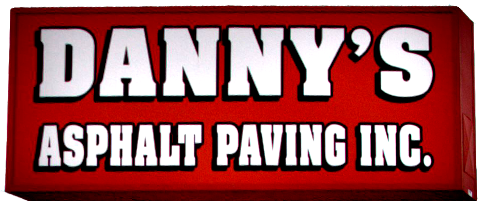What separates industrial roadway paving from other paving jobs?
Roadway paving projects are much different than your average residential or commercial paving jobs. In the case of most roadways, you must account for city codes and regulations, stricter time constraints, and other factors.
At Danny’s Asphalt Paving, we are proud to have delivered professional roadway paving services throughout West Texas for more than 30 years. Keep reading to learn about some of the biggest differences between industrial roadway paving jobs and other paving projects!
Heavy Traffic
First and foremost, the application of large roadway paving projects is much different than that of most residential and commercial jobs. While a driveway supports a few passenger cars and a commercial surface supports a limited amount of slow-moving traffic, roadways support heavy traffic moving at much higher speeds.
For this reason, roadways must be engineered to account for not just the volume of traffic but also the weight of all types of vehicles—passenger cars, trucks, equipment, machinery, and more.
Fuel Efficiency
With residential and commercial projects, fuel efficiency isn’t always a primary concern. After all, very little fuel is used when driving across these surfaces.
When using a roadway, on the other hand, vehicles may expend a significant amount of fuel traveling from one location to the next. Roadway surfaces need to be especially flat and smooth so as to conserve fuel and limit emissions.
Noise Levels
Given the sheer amount of traffic that exists on major roadways, noise pollution quickly becomes a concern.
In order to limit collective noise levels, asphalt roadways need to be smooth, well-engineered, and frequently maintained. Otherwise, roadways may be the source of significant noise disturbances in the community.
Drainage Systems
It’s no secret that more car accidents tend to occur in poor conditions. Given the high speeds at which vehicles travel on roadways, however, the consequences of attempting to navigate these conditions can be disastrous.
To mitigate hazards caused by bad weather, roadway paving needs to include efficient drainage systems. This will allow water to seamlessly run off surfaces instead of pooling and jeopardizing the safety of drivers.
Pavement Smoothness
Beyond conserving fuel and limiting noise levels, pavement smoothness is essential to prevent excessive wear and tear on vehicles.
Rough or unmaintained pavement causes tire treads to wear prematurely. As for large cracks, potholes, and other blemishes, these issues have the potential to cause vehicle damage. Worse yet, they can become the catalysts for collisions with other vehicles.
Road Markings
Pavement markings aren’t commonly used for driveways and even certain commercial surfaces; but for roadways, road markings are essential.
Clear road markings keep vehicles organized and provide drivers with directions as they travel at high speeds. As a result, these markings help prevent not only traffic jams but also a wide range of accidents.
Do you need a high-quality, long-lasting roadway in your community? Be sure to contact the team at Danny’s Asphalt Paving today. We would be more than glad to discuss your project with you and give you a free quote!


Recent Comments